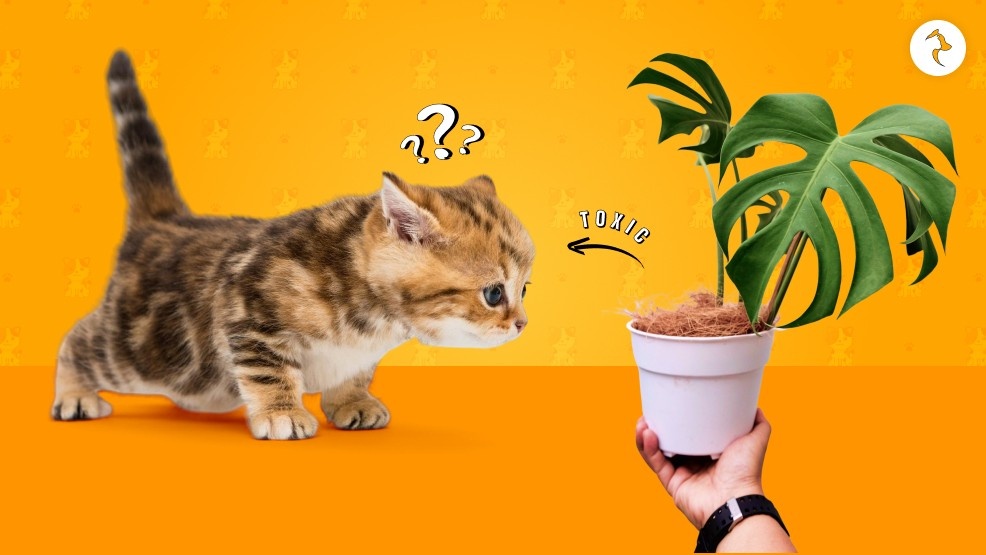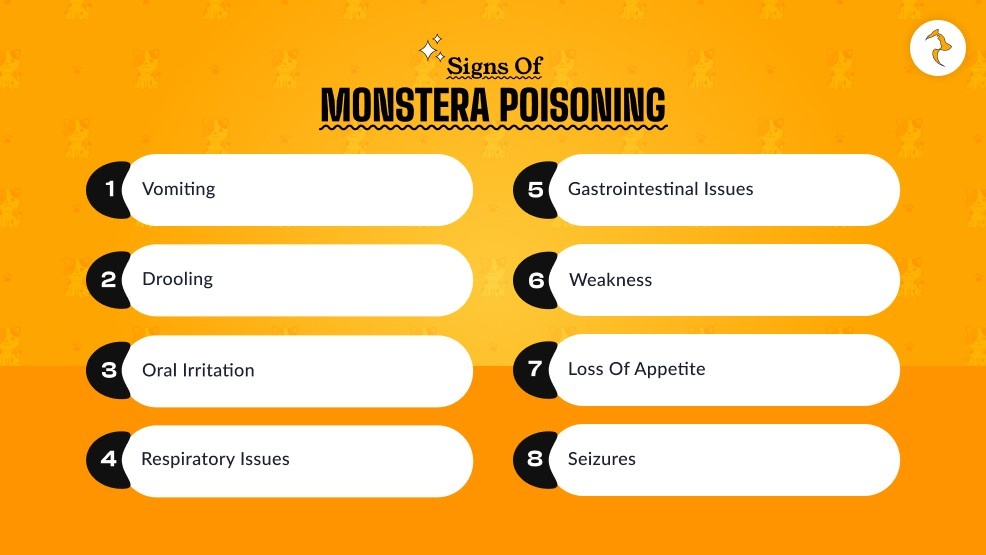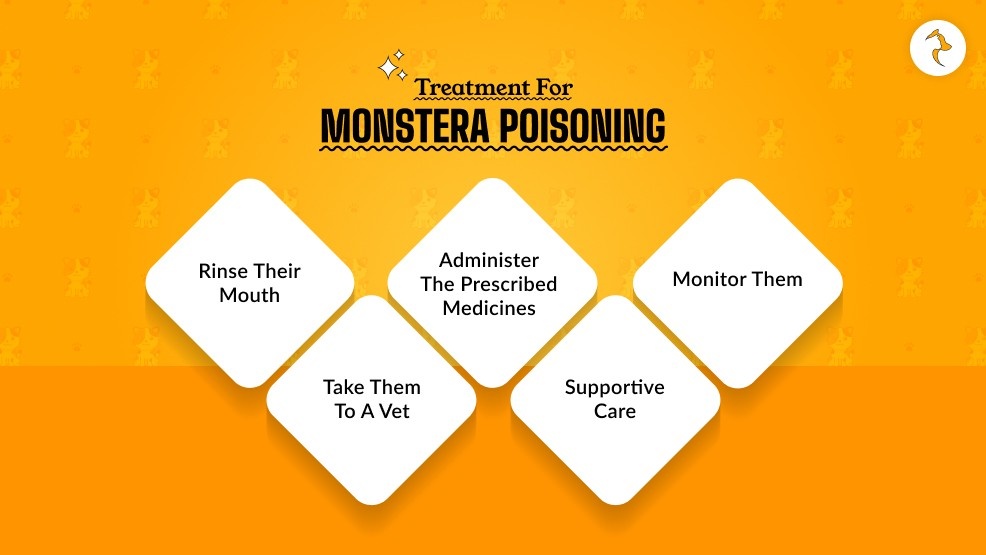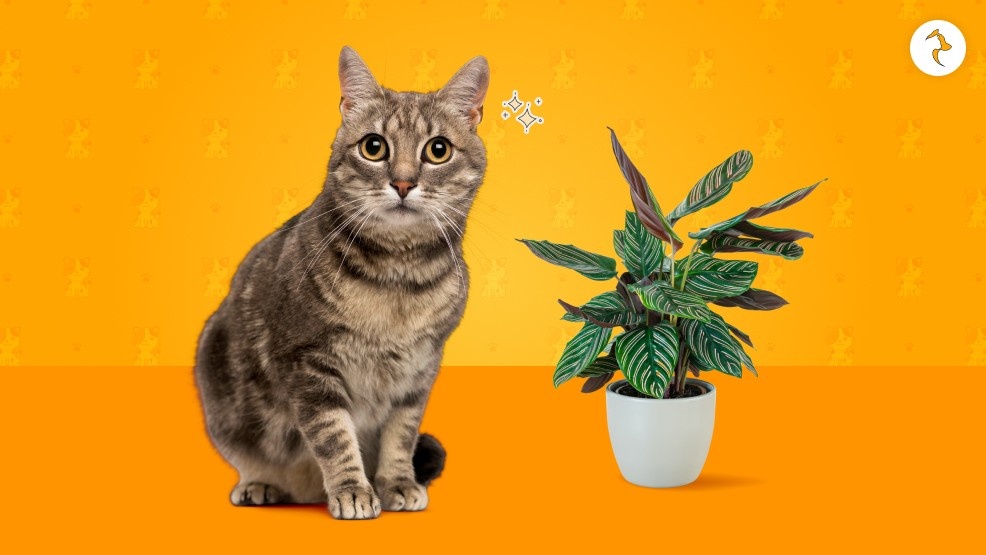Are Monstera Toxic To Cats? How Can It Harm Your Cat?


Being a cat parent and a plant parent doesn’t always work out well. Cats are mischievous creatures and often toss over plants or eat a flower or plant without you even noticing.
Not all plants are poisonous or dangerous, but what about Monstera? Are Monstera toxic to plants? The answer is yes. All Monstera species are toxic to cats. Moreover, it is not just cats; it is also harmful to dogs and humans.
You might have kept the plant indoors without even knowing how it could harm your little one. As a cat parent, you should know about the common toxic house plants to cats, and Monstera makes it to that list.
Are Monstera Toxic To Cats?

Monstera plants are toxic to cats, but they are not deadly in most cases. If they ingest a part of the plant, it can irritate their stomach, throat, and mouth. Moreover, they might even vomit and drool because of this.
This will not pose a risk to their life unless they consume it in large quantities. However, this rarely happens as it irritates their mouth immediately after they have come in contact with it or just after taking a bite.
What Makes It Unsafe For Cats?
If you are wondering what makes these plants so poisonous, then the answer is calcium oxalate crystals. Moreover, it is sharp and feels like a bundle of needles. These cause micro-cuts in the tissues of the digestive system, including the mouth and throat.
These often get embedded in their tissues. These crystals can irritate the skin, which is why it is essential to wear gloves even when pruning plants.
These crystals help the plants and prevent them from being eaten by animals. The ripe fruit is the only safe part, and nothing else.
These calcium oxalate crystals are present in every place where the sap flows, like the stems, roots, leaves, and the unripe fruit. In short, every part of the plant is harmful, so it’s best to keep your little felines away from the plant.
Signs Of Monstera Poisoning

Are Monstera toxic to cats? Well, yes. But how to determine if they have consumed the plant, or whether they are experiencing Monstera poisoning? What are the signs and symptoms?
- Vomiting: Your lifeline friend will vomit repeatedly, and the seriousness of the issue varies from cat to cat.
- Drooling: Is your cat drooling? This could be another sign of monstera poisoning. Excessive salivation occurs due to Monstera poisoning.
- Oral irritation: The calcium oxalate crystals can cause irritation in the esophagus, mouth, and tongue. You might notice them pawing their face and having difficulty swallowing their food.
- Respiratory issues: They might have difficulty breathing because of the swelling in their throat, mouth, and tongue.
- Gastrointestinal issues: Your little feline friend might suffer from diarrhea, which can even lead to dehydration.
- Weakness: Some cats may become sluggish and lethargic as a result. However, this happens only in severe cases.
- Loss of appetite: Due to oral irritation, they often refuse to eat.
- Seizures: This happens when the case becomes extremely serious.
Treatment For Monstera Poisoning

These plants are moderately toxic to cats, but ingestion of large amounts can be serious. Although it is not fatal, it is essential to provide immediate care to prevent any further complications.
- Rinse their mouth: Gently rinse their mouth to remove any remaining pieces of the plant that may still be inside.
- Take them to a vet: It is essential to seek professional help. Take them to a vet or an emergency clinic for safety.
- Administer the prescribed medicines: Provide them with the necessary medications to alleviate nausea, vomiting, and protect the stomach lining. Doctors may even suggest anti-inflammatory drugs.
- Supportive care: If the case is serious, they may even need intravenous fluids to address their dehydration and maintain stable cardiac function. Doctors often recommend activated charcoal to absorb the toxins in the stomach.
- Monitor them: Continue to monitor their respiratory rate, blood pressure, and heart rate to ensure they remain in a stable condition.
Never give them any remedies or medications without consulting the vet. It can make the situation worse. Take them to a vet and only give medicines they have suggested.
How To Keep Them Away From This Plant?

We all know that prevention is better than a cure. Therefore, it is better to prevent them from coming into contact with these plants. You need to combine distractions with repellents and limit their access to these plants.
1. Keep It Out Of Their Reach
The best thing you can do is keep the plants out of their reach. It can be challenging if your cat is athletic and can reach high places. Keep it somewhere they cannot access or use a barrier to block their access.
2. Cat Deterrents
Deterrents can make the plants less attractive to them. It will make the plant smell bad to them, but not to you. Alternatively, you can train your cat in a way that doesn’t associate it with any kind of plants.
3. Water
Spray a small amount of water from a squirt bottle to keep them away from certain objects. It is a harmless way of training them. If you see them approaching the plant, immediately spray water on them so they start avoiding the area.
4. Repellents
Cats dont like the smell of any citrus fruits. So, place some grapefruit peels, lime, orange, or lemon in the soil, or use essential oils of this kind around the rim of the pot.
Spray the plant with water and mix a bit of lemon juice in it. This will keep them away from the plants.
5. Mulch The Soil
Apply something on the surface of the soil that they dislike, and it will keep them away from digging the soil. For instance, you can add some pine cones, stones, or bark on the soil surface. This acts as a barrier, making it difficult for them to dig up the soil.
6. Distract Them
Give them a lot of attention. Provide them with various types of toys to keep them entertained, so they won’t even think of getting close to the plants. Keep them occupied.
What Are Some Cat-Safe Plants That You Can Keep?

If you think this will be too much for you or you don’t want to keep something in the house that might harm your little one, you can always opt for cat-friendly plants. Here are some of those plants mentioned.
- Haworthia
- African violet
- Burro’s tail
- Christmas cactus
- Boston fern
- Calathea
- Money tree
- Peperomia
- Majesty palm
- Cast iron plant
- Echeveria
- Prayer plant
- Pilea
Keep Them Safe
Are Monstera toxic to cats? Yes. But are they fatal? No. Monsters are not deadly to cats unless they consume them in large amounts.
However, the plant is gorgeous and is an amazing houseplant. So, if you want to keep it in your house, these tips will help you.
You can try a few of these together as well. Try to keep them occupied with other things so they do not pay attention to the plants.
But if things are not working out for you, you can always choose one of the cat-friendly plants for your home.
Read Also:









Leave A Comment